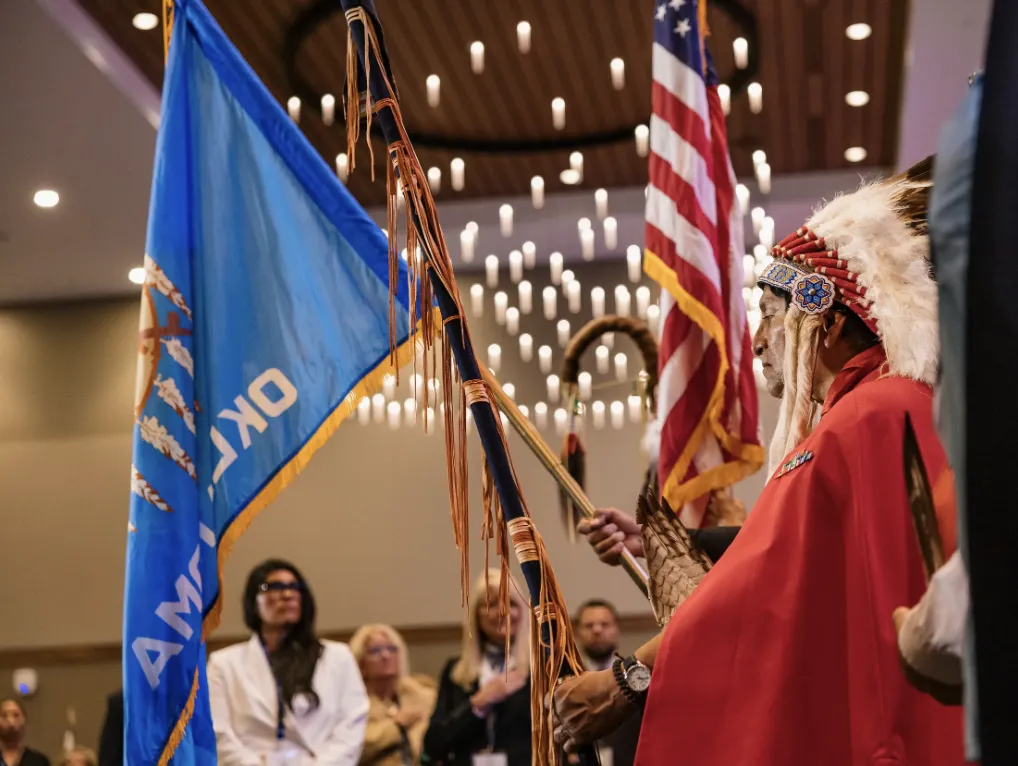
Let’s Start Treating Tribal Governments as Allies — Not Adversaries
Guest Opinion By Courtney Jordan for the Oklahoman
Oklahoma is home to 38 federally recognized tribes. These tribal nations aren’t relics of the past — they are modern governments with jurisdiction, economies, and responsibilities that directly impact millions of Oklahomans.
Yet, despite this constitutional and legal reality, some of our state’s top elected leaders continue to treat tribal governments as adversaries, not allies. That’s a political mistake — and a conservative failure.
Over the last few years, the relationship between Oklahoma’s state government and tribal nations has grown increasingly strained. Public disputes over hunting and fishing compacts, tax enforcement, and criminal jurisdiction have too often been defined by unilateral action, legal escalation, and political posturing.
What’s missing? A coherent, consistent framework for state agencies to engage with tribes as sovereigns. This isn’t about yielding control or expanding bureaucracy. It’s about governing like conservatives.
At the heart of conservatism is a belief in limited government, local control, and the rule of law. We don’t want Washington running Oklahoma — and we shouldn’t want Oklahoma’s state government running roughshod over tribal jurisdiction either.
Tribal governments are not cultural nonprofits or advocacy groups. They are sovereigns recognized under the U.S. Constitution and the treaty obligations of the United States. When state officials ignore or sideline tribal governments in major decisions — on infrastructure, public safety, or natural resources — they’re not just creating conflict. They’re undermining the very principle of self-governance that conservatives claim to champion.
The problem isn’t that Oklahoma lacks authority to govern. It’s that the state lacks a process to govern wisely.
Without a clear tribal consultation policy, agencies make decisions in silos, unaware of — or indifferent to — jurisdictional overlaps with tribal governments. The result? Delays, lawsuits, wasted resources, and lost opportunities.
A smart policy would not hand tribes a veto. It would simply require notice and good-faith consultation before the state takes actions that materially affect tribal lands or jurisdictions. That’s not controversial. It’s common sense.
Failure to consult with tribes doesn’t just harm relationships — it hurts the bottom line. When agencies push through regulations or projects without tribal input, they risk costly delays and litigation. Roads, pipelines, broadband access, and energy projects have all stalled because of avoidable disputes.
"Conservatives should favor predictability and stability."
That means supporting policies that require early engagement and coordination with tribal governments — not after the fact, but before problems arise.
Oklahoma doesn’t need more lawsuits. It needs a consistent standard. A statutory consultation requirement — modeled on conservative principles — would improve intergovernmental coordination without growing government. It would require agencies to designate a liaison, adopt a written policy, and report annually on tribal engagement.
No new spending.
No new office.
No new litigation rights.
Just clarity and structure.
The state’s ongoing tension with tribal nations isn’t sustainable — and it’s not conservative. Oklahoma Republicans have a chance to lead, not by fighting sovereignty, but by respecting it.
If we believe in local control, we should support it at every level — including tribal governments. That’s the path forward, and the kind of leadership Oklahoma needs now.
About the Author
Courtney Jordan, Esq., an enrolled citizen of the Cherokee Nation, is an award‑winning former Assistant U.S. Attorney with over a decade of experience in federal Indian law and criminal defense. She is the founder of Suli Law PLLC in Tulsa.
📎 Source: Read the original in The Oklahoman
Photo courtesy: Provided/Oklahoma City University
#Cherokee411 #TribalSovereignty #OklahomaPolitics #IndigenousRights #CourtneyJordan #SuliLaw #SelfGovernance #ConservativeLeadership #CherokeeNation
